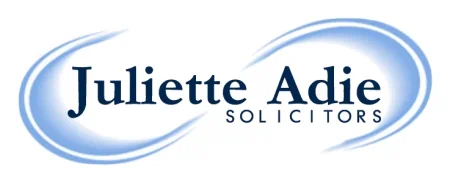Guide to Probate and Estate Administration
First Steps
The death must be registered within five days. To record the death, the registrar will need the medical certificate supplied by the doctor certifying the death and the following information:
- Date of death
- Full name of the deceased
- Usual address
- Maiden name of a married woman
- Date and place of birth
- Occupation
- Full name and occupation of husband where the deceased was a married woman or widow
- Details of any pensions received by the deceased
The registrar will issue a death certificate for which there is a small charge for each copy. A death certificate must be shown to each bank or investment holder and a copy should be placed with any property deeds. A certificate for burial or cremation will also be issued for you to pass on to the undertaker.
The funeral arrangements are usually undertaken by a member of the deceased's immediate family. If there is a Will, it needs to be examined for any specific funeral wishes. It is the executors appointed in the Will who have authority to arrange payment of the funeral account. Where there is sufficient money, the deceased's bank will usually release funds to cover the funeral even before a grant of probate is issued.
Obtain Details of the Estate
Personal representatives are the people who, having accepted the task, are personally responsible for the proper administration of the estate. Where there is a Will they are called 'executors' and have authority straight away. Where there is no Will (or no available executors), they are called 'administrators' and obtain their authority from the probate court.
The personal representatives should take steps to determine whether there is a Will and obtain the original. The Will is usually lodged with the deceased's solicitor, bank or with other own important papers. The personal representatives must identify all of the assets and any liabilities in the estate and obtain valuations. The deceased's last income tax return is a very useful source of information. Relevant institutions should be advised of the death and asked for a 'valuation for probate purposes'. They will need to see an original or certified copy death certificate.
Appropriate steps should be taken to safeguard the assets in the estate until the assets can be sold or transferred. If there is a property that is unoccupied, steps should be taken to ensure its security and the insurance position should be checked. Insurance companies should be contacted as a change in circumstances can render a later insurance claim void.
Details of money owed by the deceased such as household bills, loans and funeral expenses are liabilities of the estate and must be included on the inheritance tax papers.
It is also necessary to consider financial transactions made during the deceased's lifetime. Gifts need to be disclosed and other financial interests such as a partnership or trust may need to be considered for inheritance tax purposes.
Inheritance Tax
Once the personal representatives have an accurate valuation of the assets and liabilities, the inheritance tax account can be prepared. If there is any inheritance tax to pay, this must be arranged before an application for probate can be made. Banks are usually prepared to release the deceased's own funds for this purpose although it is sometimes necessary to arrange a loan.
Applying for Probate
The application for representation can then be made. The grant of representation proves the legal authority of the named person(s) to deal with the estate. HMCTS Probate advise us to allow them 16 weeks to complete the procedure after they have received the papers. Original wills are retained by the probate court to become a matter a public record but the grant of probate will include a copy.
Collecting the Assets
When probate is granted, the assets can be collected in and bills can be paid.
Income Tax
A tax return for current or previous years may be required to finalise the deceased's income tax affairs.
Distributing the Estate
An estate account should be prepared when all assets have been collected and all bills have been paid showing the amount due to each beneficiary. Beneficiaries are the people entitled to share in the estate either in accordance with the terms of the Will or under the rules of intestacy. They might be entitled to a fixed sum of money, a particular item such as jewellery or a share in what is left. Some assets may be transferred to beneficiaries depending upon the terms of the Will or the intestacy rules where there is no Will. Before distributing the estate the executors may consider advertising to protect themselves against unknown claims and they may need to consider the possibility of claims under the Inheritance (Provision for Family and Dependants) Act 1975.


